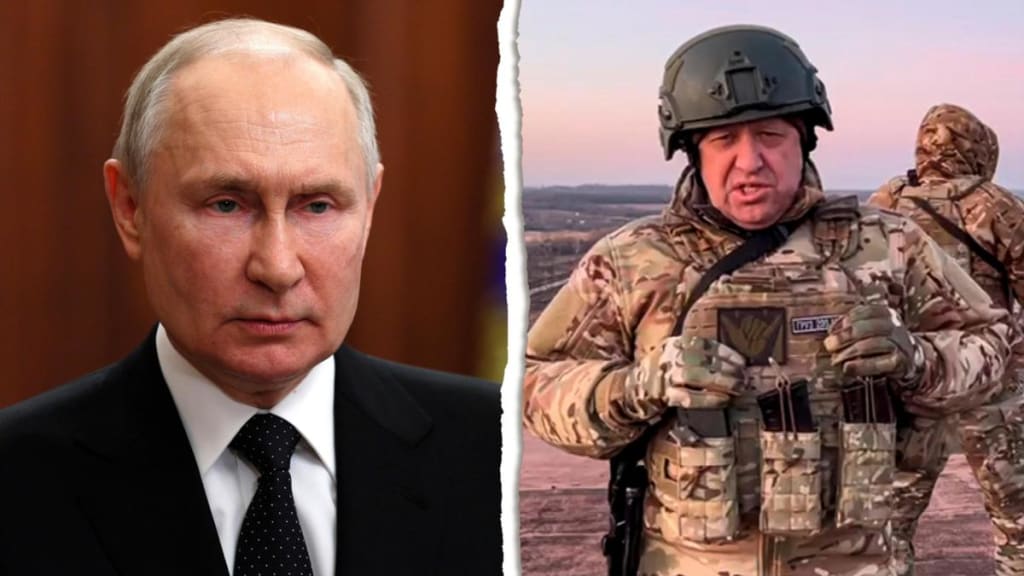The Near Coup in Russia
A Fragile Democracy's Wake-up Call

Introduction:
In recent years, the world has witnessed political turmoil in various corners of the globe, with countries grappling with internal power struggles and threats to their democratic systems. One such incident that sent shockwaves through the international community was the near coup in Russia. This alarming event unfolded against the backdrop of a fragile democracy, raising concerns about the stability of the nation and the potential ramifications for global politics. In this article, we will delve into the details of the near coup in Russia, examining its causes, implications, and the urgent wake-up call it presents for the country's democratic future.
The Escalation of Political Tensions:
Russia has long been a complex political landscape, with a history of authoritarian rule and a tenuous transition towards democracy. However, recent years have seen a marked deterioration in political freedoms and a consolidation of power under President Vladimir Putin. This centralization of power, combined with growing discontent among the population, laid the groundwork for the near coup.
At the heart of the crisis were allegations of widespread corruption, economic inequality, and political repression. Dissatisfaction among various segments of society fueled protests and calls for change. The opposition, comprised of diverse factions ranging from liberal activists to conservative nationalists, sought to challenge the status quo. As tensions escalated, the stage was set for a confrontation that could have potentially derailed Russia's democratic experiment.
The Failed Coup and its Aftermath:
The near coup unfolded in a series of dramatic events that gripped the nation. A group of high-ranking military officials, disillusioned with the direction of the country, attempted to seize power. Their aim was to establish a military-backed government that would address the grievances of the population and implement reforms. However, their plans were foiled by a combination of loyalist forces, intelligence agencies, and elements within the military itself who remained committed to the existing government.
The failed coup was a pivotal moment for Russia's democracy. While the immediate crisis was averted, it exposed deep fault lines within the country's political landscape. The event triggered a wave of arrests, purges, and increased repression as the government sought to consolidate its power further. Critics argue that these measures further undermine the prospects of a democratic Russia, creating an environment of fear and stifling dissent.
Implications for Russia and the World:
The near coup in Russia carries significant implications for both the country itself and the international community. Domestically, it further erodes trust in democratic institutions and exacerbates societal divisions. The government's heavy-handed response to the crisis risks alienating even moderate voices, pushing them towards more radical positions. This polarization threatens to undermine political stability and could have long-lasting consequences for the nation's future.
Internationally, the near coup has triggered concerns about Russia's role on the global stage. The nation's increasing isolation, combined with its assertive foreign policy, creates a volatile environment. Russia's potential descent into authoritarianism poses challenges for Western democracies that have relied on diplomatic engagement and cooperation. It also raises questions about the future of regional security, as an unstable Russia may resort to more aggressive measures to safeguard its interests.
The Wake-Up Call for Democracy:
Above all, the near coup in Russia serves as a wake-up call for the fragility of democracy in the modern world. It highlights the importance of safeguarding democratic principles, promoting transparency, and nurturing inclusive political systems. The incident underscores the need for international support and engagement to promote democratic values and ensure the protection of human rights.
Conclusion:
In conclusion, the near coup in Russia sent shockwaves through the international community, raising concerns about the stability of the nation's fragile democracy. The event highlighted underlying tensions and divisions within Russian society, and the subsequent response from the government raised further questions about the country's democratic future. It is imperative for Russia to address these challenges and work towards a more inclusive and resilient democratic system. Additionally, the international community should take this opportunity to reinforce support for democratic values globally and promote stability through engagement and assistance. Only by doing so can we ensure a more secure and prosperous future for all nations
About the Creator
Enjoyed the story? Support the Creator.
Subscribe for free to receive all their stories in your feed. You could also pledge your support or give them a one-off tip, letting them know you appreciate their work.





Comments
There are no comments for this story
Be the first to respond and start the conversation.